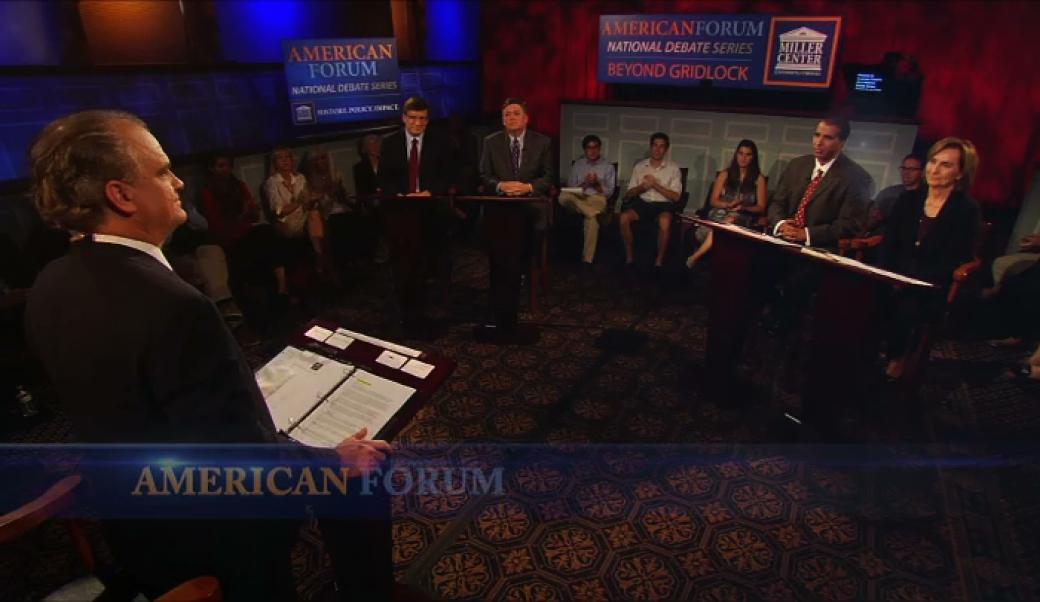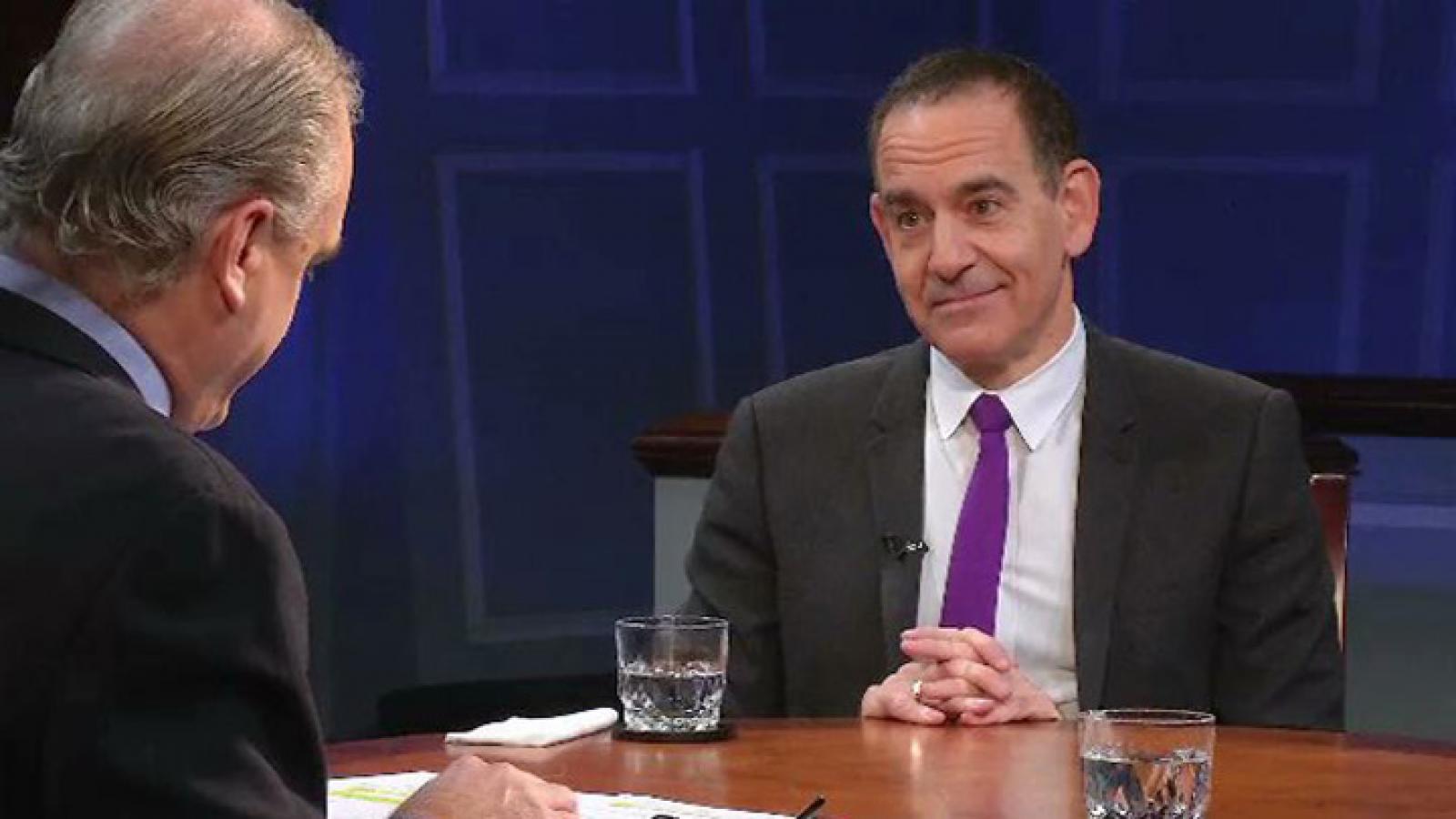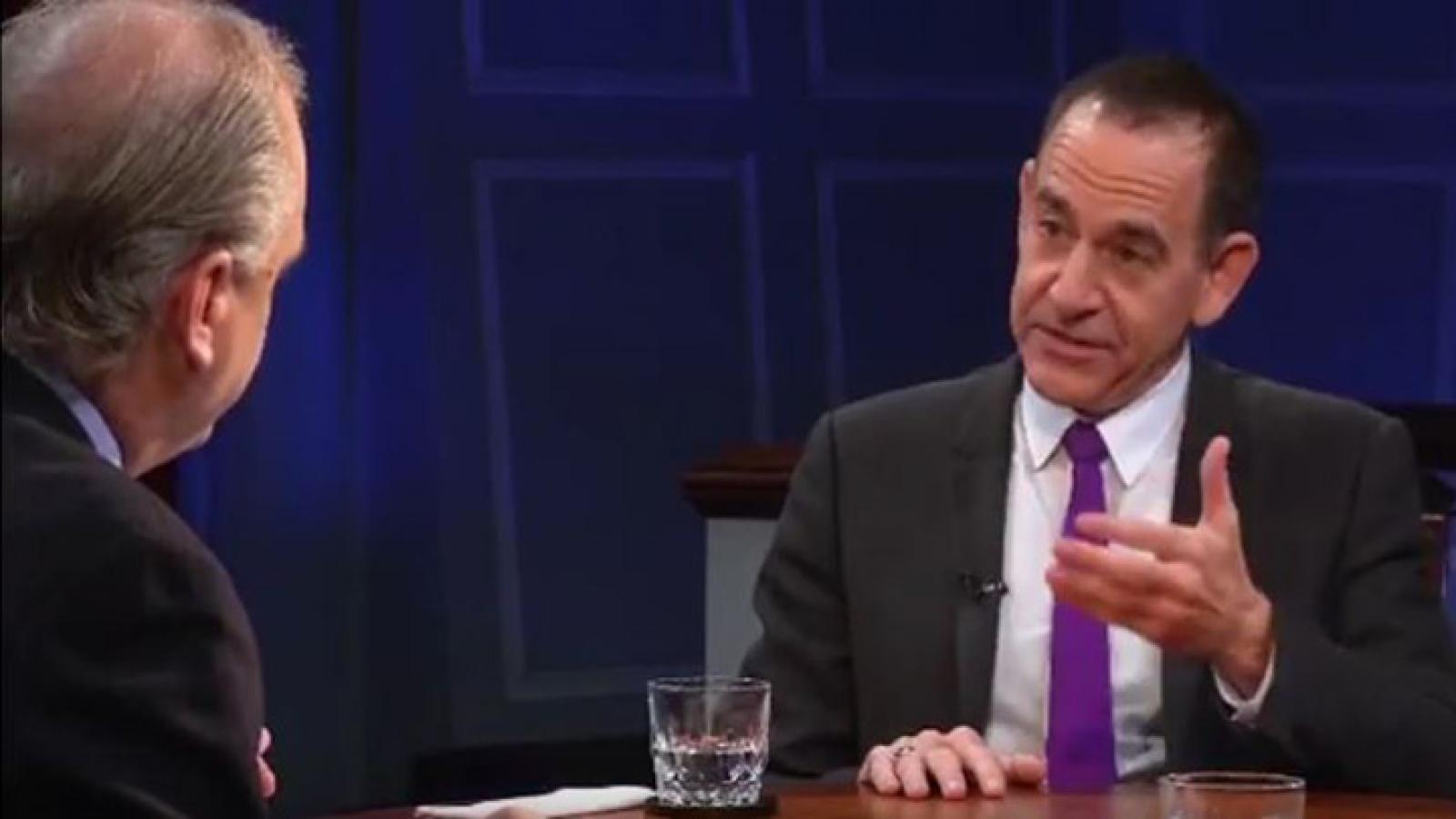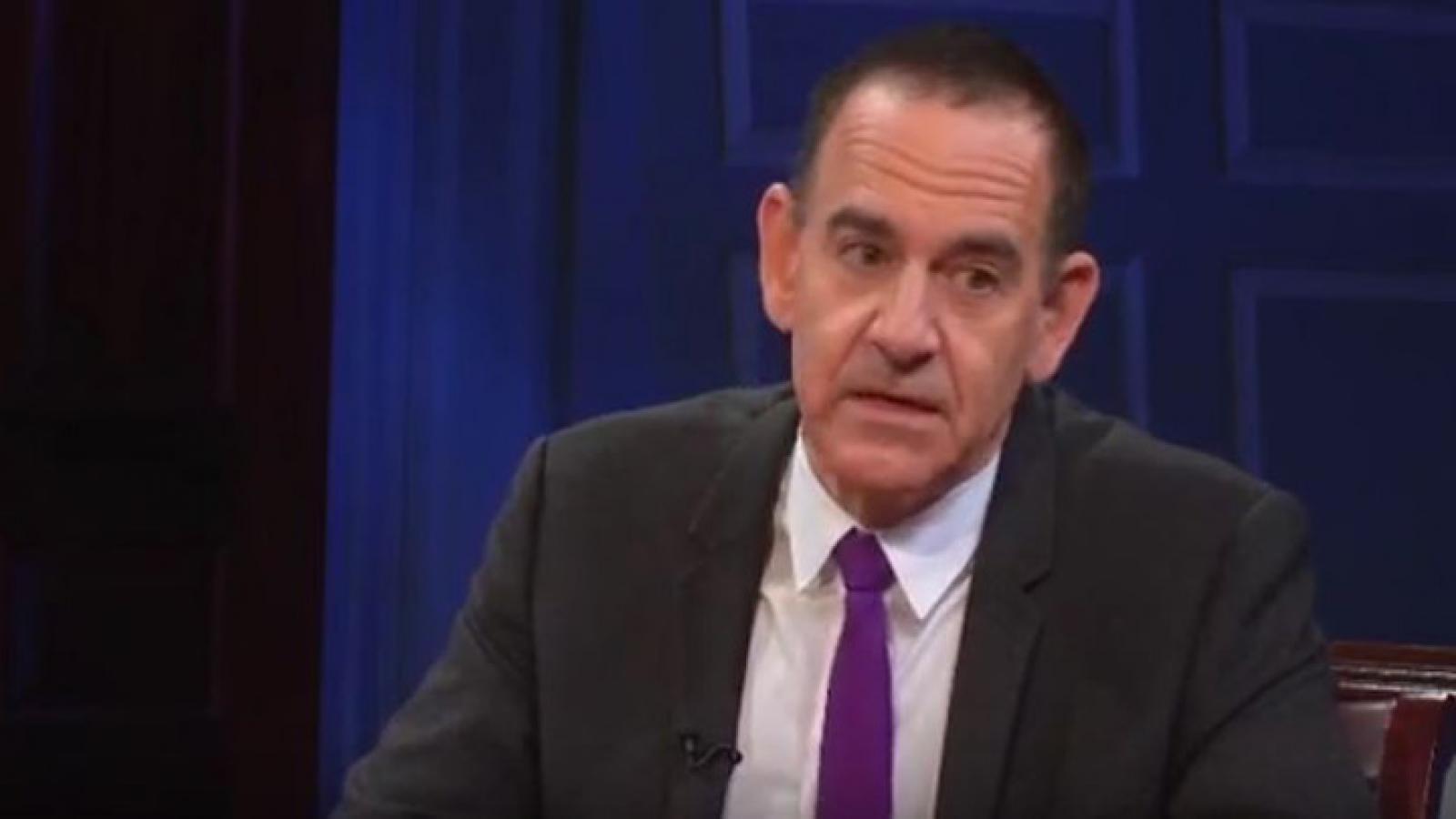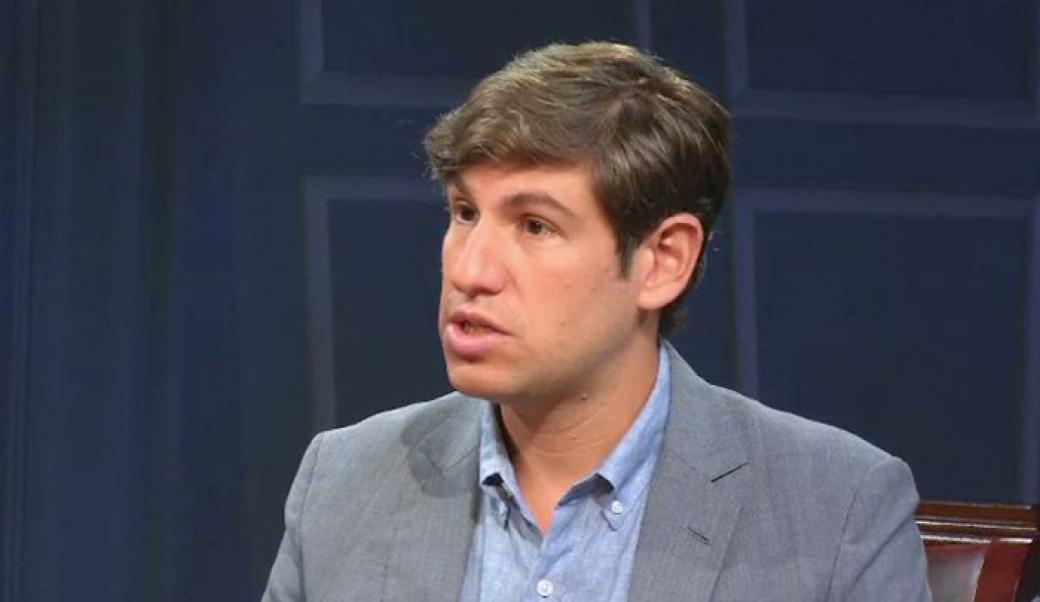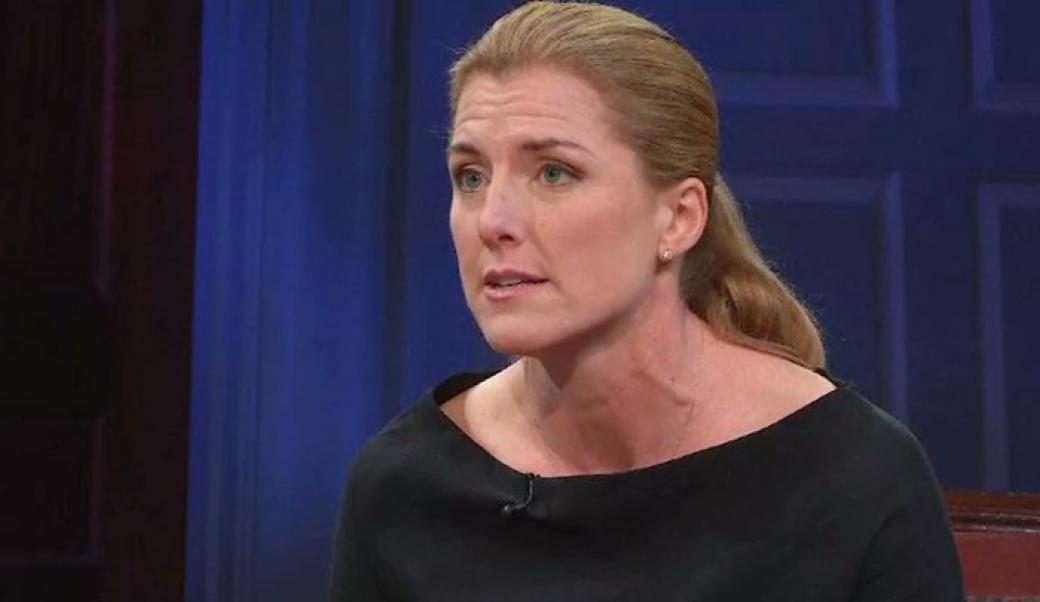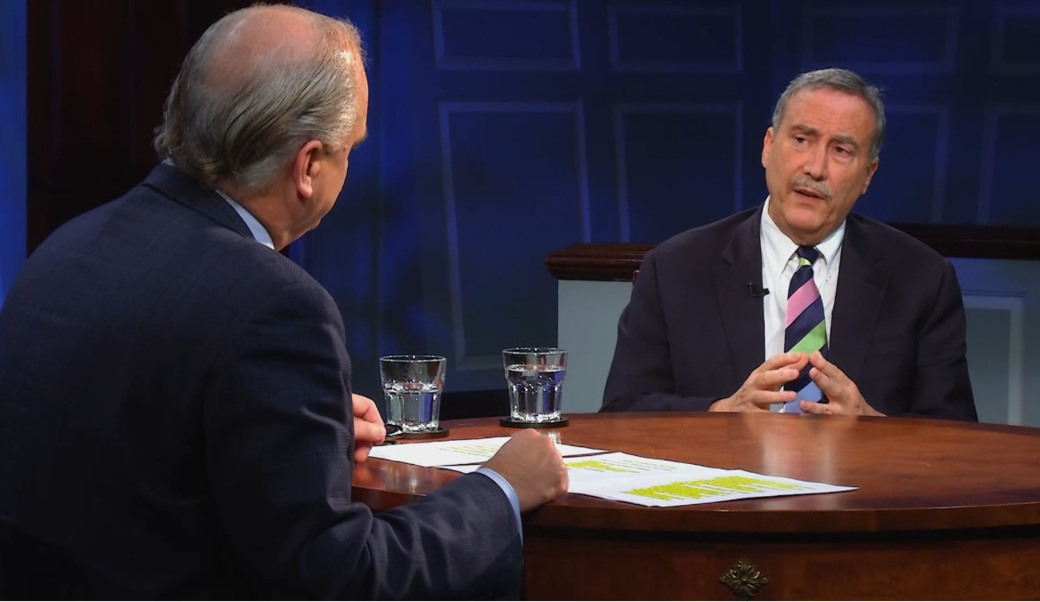About this episode
December 23, 2016
Tim Naftali
How does the contentious 2016 election compare to 1968? Does either—or both—candidate share characteristics with Richard Nixon? Tim Naftali is a former director of the Nixon Presidential Library and Museum and now clinical associate professor of history and public service at New York University and a regular CNN contributor. He is the author of many articles and books on national security, intelligence, and presidential history.
Elections
Was 2016 a rerun of 1968?
Transcript
Douglas Blackmon: Welcome back to American Forum. I’m Doug Blackmon. Americans have just gone through one of the most difficult and conflicted presidential campaigns in modern times. The election played out against a paradoxical backdrop. Even with the economy steadily improving, unemployment at historic lows, hundreds of thousands of new jobs, the approval of President Barack Obama growing stronger and stronger, it is nonetheless a time of bitter partisanship and wide anxiety. We are in a moment of American history that is deeply skeptical of government and our political leadership. Polls show that we have deep doubts about our fellow citizens too—especially when their political loyalties differ from our own. We are suspicious of each other. Many have lost confidence in fundamental ideals such as permitting the members of any faith to freely worship. We are anxious about new forms of attack from foreign foes—even as we consistently meet those threats and punish our enemies. There is civil unrest on the streets. More tension between civilians and the police. And an unpopular war drags on—far away. That is a description of 2016. But it carries loud echoes of another time, at the end of the tumultuous 1960s, when a political figure with a complicated past won the presidency in the midst of great turmoil. The new president in 1969 was Richard Nixon, a man in whom we can see in hindsight—a combination of some of the perplexing dimensions of both presidential candidates in 2016. He was already a longtime figure on the national stage and a political expert an insider—not unlike Hillary Clinton. And like Clinton, Nixon also carried deep political scars and negative associations and habits. Nixon was also—we would eventually learn—an emotionally erratic and unstable man. Consumed with grudges. Willing to leverage the most basic instincts of voters to gain power, in ways sometimes reminiscent of Donald Trump’s most troubling dimensions. So for this episode, we’ve asked a distinguished historian of the presidency—and of Richard Nixon—to join us in an examination of that time, and that new president—and what it might tell us about the challenges confronted by our country and our new president in the aftermath of this unpleasant election season.
FACTOID: The Question: Was 2016 a rerun of 1968?
Tim Naftali is a former director of the Nixon Presidential Library and Museum and now clinical associate professor of history and public service at New York University, and a regular CNN contributor on presidential history. He is the author of many articles and books on national security, intelligence and presidential history—some of which he wrote while a senior scholar here at the Miller Center a decade ago. Thank you for coming.
FACTOID: Miller Center’s Presidential Oral History program began with Carter
Timothy Naftali: My pleasure Doug; it’s nice to be back.
3:36 Blackmon: Now Tim, we taped this discussion we’re about to have we taped it before the election, the outcome of the election is actually known. So we’re going to have a conversation about that is mostly about the parallels between that time and this time but also looking at ways in which the Nixon presidency, Nixon himself the first month, the first year of his presidency how all of those things relate to the time we live in today but also the two candidates, one of whom is now on his or her way to becoming president of the United States.
Naftali: I remember the discussion just before the Republican convention umm and the Trump team then would change after the convention but the Trump team then talked about how the inspiration for Trump’s address would be Nixon. And that ’68 was the organizing principal in 2016. Now some of that can be explained because a number of Trump advisors were old enough to have served Richard Nixon and to have participated in shaping Richard Nixon—public relations. But it also was a reflection of the sense among many angry voters in this country—on the left and on the right—that there was a fraying on the basic fabric of this country.
FACTOID: Nixon defeated Hubert Humphrey by less than 500,000 votes
There was a sense that government was either too much in your business or whatever it was doing was not successful. There was a sense that common, a common understanding of a threat to this nation—both domestic and foreign—didn’t exist. A sense that consensus, you know one of the things we historians do all the time is say, you know what, there never really was the consensus people think, but there were shared principles and values. That all of that had gone. And there was in its place a sense of, of resentment, anger and concern. Umm, and the Trump appeal was that I will calm these waters. And that’s exactly what Richard Nixon said in 1968. He was offering, not a vision really of the future, it was this country’s in trouble, it needs a strong leader, I have shown my strength—in the case of Nixon it would have been his vice president—I can do this. And you need a law and order president. Now the fact that there was an appeal that had you know that that had brought, you know certainly some broad appeal, was the product of the similarity between the late ’60s and our current era. We always have to be very careful, Doug, about, about drawing analogies because of issues that apply. [Blackmon: There’s all these variables.] But there is no question that people in the United States feel that something is terribly wrong. And after 50 years of fighting a faceless enemy, there’s also a natural weakening of trust in government. Why haven’t you fixed this problem? Why are we still fighting? Why are we actually threatening our own neighborhoods? Couldn’t we be doing a better job? That has created the kind of pressure of government for better results that this country was feeling in ’68. Now in ’68 it wasn’t a faceless enemy. Umm, the combat was different. The threat to Americans at home was not quite clear. Yes, you had a nuclear threat. It was a generalized one, but the Soviets were not considered that threatening and they were the ones to launch a nuclear strike. But there was a sense that, you know, our government keeps telling us that they’re going to resolve this problem. And yet year after year people die. What’s going wrong? And what happens in the late ’60s—and this is another parallel to this—is that this kind of conversation is coming, it’s happening on both sides of the spectrum. Both sides of the aisle. It’s not just among the right or Republicans. The left too has a sense of anger and disappointment. And as a result you had the Bernie Sanders movement. That was a product of a disquiet on the left. So it’s, it’s this moment of turbulence which not exactly like 1968 is pushing to the fore at least one candidate who’s just focusing on law and order.
8:26 Blackmon: So the the sense of unsettlement that is occurring across the spectrum in this period of time, ’67 – 8 – ’69 as Nixon becomes president produces this president who reflects in interesting ways and in different ways both of the figures that campaigned, that were nominated for president in 2016, on the one hand he’s this long time political figure, he’s been around a long time, he’s been in the White House as vice president the same way Hillary Clinton had been in the White House in the sense as First Lady. He is knowledgeable about the areas he’s been involved with in government. He’s very interested in foreign policy in particular. And he talks a very good talk but he also bears grudges, he’s highly secretive, has scandals in the past that won’t quite go away. Are there parallels between that version of Nixon and Hillary Clinton that tell us anything?
Naftali: There are some parallels. One of the big differences is that Richard Nixon couldn’t control his own id. He had a chip on his shoulder. Even when, as he would say, at the highest mountaintop. The similarity between these two candidates ah, is that ah, Hillary Clinton bears a grudge. But it’s not a grudge against lots of people. Richard Nixon didn’t like Jews and he didn’t like gays and he didn’t like African Americans. Umm, I remember talking to one of his closest advisors Leonard Garment and, Leonard Garment happened to be Jewish, and I was asking him about the antisemitism and he said you just have to understand he hated everybody. Umm, Hillary Clinton bears, I believe, I don’t know her but I believe just watching her and listening to her, that she bears the scars of Whitewater. [Blackmon: And everything around.] And everything associated with it and and there are many different ways to deal with that. And of course none of us has lived under that kind of microscope. She really doesn’t like the press. And I say that because I watched her in the campaign how little she interacts with the press. Her e-mail scandal is actually understandable only, I believe, as a product of the sense that official Washington had leaked her private information because everybody cares about the Clinton’s private lives. And rather than trust the State Department’s archivists who are real pros and trust the system, she grabbed her information so that she would determine, her lawyer, would determine what was private and what was official. That’s a product of the ’90s that’s a product of Ken Star and the special prosecutor. That’s a product of the conspiracy theories that she killed her friend, Vince Foster. That’s a product of the travel- I mean my goodness, the number of things that had the Nixoniangate associated with it in the first years of the Clinton administration were unbelievable. We’ve forgotten most of them. She hasn’t. And it’s that which I think makes her secretive.
11:37 Blackmon: No, that really is a remarkable observation to make umm and it, and also all the more remarkable in the sense that with the e-mail scandal for Hillary Clinton that unlike the Nixon secrecy scandal but with Clinton in the end no there haven’t been there’s no there there in terms of e-mails that appear to demonstrate high crimes or really serious offenses. And so ironically it is that in the case of Clinton it’s entirely the sense of cover up that is the problem not really the substance of the e-mails themselves. At least with Nixon there was something, there was a need to cover up for his political viability.
Naftali: To be fair minded about this, umm, e-mails were deleted and we haven’t found them and we don’t, I’m not suggesting that, what I know for fact, ok I feel confident, I don’t know for fact because I haven’t seen these deleted e-mails. I know that the thing that drove the congressional inquiry that led to the demand for the e-mails, the Benghazi matter, that that I’m sure is not touched on by the e-mails that she, that she deleted.
FACTOID: 2016 House Benghazi Report found no evidence of wrongdoing
I have a feeling Clinton matters, personal matters about her revelation about her husband, I suspect those are the things that are gone. I’m not suggesting that those would lead to articles of impeachment, no. but we don’t know what we don’t know. [Blackmon: Right.] Umm, but as regards to Benghazi, given the nature of that whole inquiry I would be surprised if her lawyer deleted things related to Benghazi that would have resulted in impeachment. I don’t even know what the issue would have been.
13:19 Blackmon: And so let’s talk about Nixon and Trump. I think these are one might say an alignment of even more troubling aspects of both men. What is the beyond the circumstantial situational similarity between Trump and Nixon in terms of the man and what seems to be the character instincts of the individuals, how do they align?
Naftali: Well Donald Trump tweets what Richard Nixon would say to his inner circle. The uncontrolled id the prejudice, the biases, the immature egotism, the the sense of, of the defensiveness, ah the thin skinned nature of Donald Trump’s social media persona. That was what Richard Nixon in the Oval Office captured on tape. And the real interesting question for us is when a thin skinned person who seems troubled becomes president, how well does the system accommodate for that and protect us from this person’s impulses? That’s the key. and that and obviously given the Richard Nixon is the only president who resigned and he would have been found guilty if he had not been pardoned. Obviously the Nixon system didn’t work very well. I mean he didn’t, he got reelected but he got reelected because the public didn’t know what was going on in the White House. And despite his best efforts to hold that in, eventually it got to him. So the system has a limit beyond which it can’t protect you. But I think without the tapes, without the fact that Richard Nixon was so thin skinned and it was such a competition with Henry Kissinger and that’s why he taped because he wanted to be able to leak to the press that he was the originator of all these great ideas in foreign policy.
FACTOID: Henry Kissinger served as Nixon’s secretary of state
If it had not been for that, I think in a struggle between the president and his opponents, the American people will tend to side with the president when it’s a matter of impeachment, not when it’s a matter of approving them. Richard Nixon never would have resigned, I’m convinced, had it not been for the tapes. And that means the system might not have worked. That he might have actually finished the second term and then enjoyed the accolades that former presidents enjoy, which means that the system would have learned that you could abuse power without consequence. I think we were very fortunate that there were tapes, which of course, there’s a consequence of this kind of thinking which is that have we learned enough since the ’70s. so that in case of having a president who is impulsive, who is thin skinned, who will order things that are not in his interest let alone that of the country. That the system will push back and protect us from him, it’s not clear that that will happen. Now that’s a real worry to me. There are checks and balances. They’re not perfect, and the White House is structured to insulate the president and protect him—or her. And I think there are challenges there, umm.
16:54 Blackmon: It is interesting in that had there not been the break in of Watergate Hotel that if that had not been discovered then they’ve gotten in they’ve gotten out then none of these things would have ever been known with or without tapes.
FACTOID: Nixon resigned after revelations of Watergate, Democratic HQ break-in
Ah, had there not been tapes we wouldn’t have gotten to the final resolution of connecting the president to it or have a strong confidence of that. Had there not been Benghazi we would never have learned about the e-mails. If there had been some troubling thing in these e-mails the question would never have been raised and we know that because the somewhat similar system that Secretary Colin Powell had. We never heard about it until we heard about the one that Hillary Clinton had.
Naftali: A president should always assume there’s always going to be a Benghazi. I mean if it hadn’t been for Monica Lewinsky. I mean the fact of the matter is it’s very, these things are just going to happen and that’s why you shouldn’t do that. You shouldn’t do it for moral reasons but you shouldn’t if you want to be purely cynical about it don’t do it because chances are something is going to happen that you hadn’t anticipated. But the untold story really is the role that Republicans played in trying to harness, reign in Richard Nixon. The heroes, not just civil servants but also political appointees who said this man is going too far. The people in the IRS who said no to this man when he wanted to audit, well, the famous enemies list. That was Nixon’s idea. Don’t ever think that that came from somebody else. It came from Nixon. The investigations that didn’t happen, the wire taping that didn’t happen. Richard Nixon at one point wanted a list of every single Jewish American in the United States government and he wanted a non-Jewish person to be placed over them. And he said to Bob Haldeman, his chief of staff, he said, you know, Jews cannot be trusted, they’re disloyal, they’re basically disloyal. Well Haldeman did a little of this which I think that’s one of, a number of bad things that he did. He also found a man named Fred Malek who was willing to put together a list of Jews for the president. But the fact that you have a president that are ordering things that are absolutely illegal, unethical, and, and, and a disgrace to the Constitution. Fortunately, in the Nixon period not everything he asked for he got.
19:16 Blackmon: That is a very important observation particularly given that in this campaign that we just had, ah, depending on one’s political spectrum, where you were on the spectrum, there were people who viewed both candidates in these apocalyptic dimensions. This view that if Hillary Clinton were to become president, this parade of terror and horrible decision would flow from that and that even worse depictions from the most partisan folks against Donald Trump. The idea, it’s somewhat reassuring hear, that even with all your misgivings and concerns about this system that in the end good human character and even people who are allied with President Nixon in terms of pure politics did the right thing.
Naftali: The one difference though, I mean yes, and that’s something to be remembered. And when people look at how government reacted to Nixon, it’s not just a story about the Democrats and it’s not just a story about the press, although they’re both very important, it’s also a story about umm the American patriots, Republican patriots who said no. What we don’t know and even when this appears, if Donald Trump is elected we still won’t know the answer to this. The Republican Party has been split by the Trump campaign. The whole Trump phenomenon has developed a fissure in the party. Many of the most experienced, the most thoughtful Republican leaders won’t work for Trump. So it’s not clear what kind of people he will recruit. Nixon was a well-known figure. He was actually viewed much more moderately, he was viewed as a moderate when he really wasn’t. A lot of great Republican administrators joined the Nixon team. [Blackmon: George Romney] Don’t know and perhaps we’ll know a little more later but if Trump were elected who’s going to besides Christi and Giuliani and Sessions and General Flynn who’s going to participate in this enterprise. It’s not clear that the people will come into a Trump administration will have the character, will know enough about America and its government to say no. You need an enormous amount of self-confidence as a sub-cabinet or cabinet official to say no to your president.
21:43 Blackmon: After the inauguration, President Trump calls up Tim Naftali and says I heard you on CNN one night saying that I’m Nixonian or making some comparison to Richard Nixon. What do I need to listen to, what do I need to do particularly in these first months, this first year of my presidency where you’ll end up not viewing me as a Nixonian figure or you have some belief that I can succeed?
Naftali: Well that’s a really tough and interesting question. It’s a tough. You see, this is the problem when you have somebody running and they are not promising any detailed approach. You don’t actually know what they believe in. You just don’t know. You don’t know with power this person will start implementing things that are reflected in the tweets. The advice I would give, this is not going to happen, but the advice that I would give Mr. Trump, then if he’s President Trump, is—Sir, please be a more thoughtful, deliberate leader than your tweets suggest. I would say to Mr. Trump, our system, our beautiful constitutional system, is fragile. Our forefathers set up checks and balances but they had George Washington in mind. And they gave the president of the United States an awesome collection of responsibilities that are unmatched by any democratic leader, democratically elected person in the world today. He is commander in chief. He is head of government. He is head of state. Your advisors are always going to disagree which means you’re going to have to make the decision. When you make that decision a whole bunch, a whole part of government is going to start marching in a certain direction. This is not like running a business. And, and, and, be more deliberate and if it means changing the way you make decisions, and I know you pride yourself on a career of successes, do it. This is not the same as any experience you ever had in your professional life. He’s not going to listen to that and that’s really hard advice to somebody who’s just beaten the odds and become president. But that is the issue here, which is the presidency is something you cannot prepare for completely. But you can put yourself in the right mindset. And that mindset is a bit more modest, a little bit more awestruck than so far we have seen in the way in which, in the language that Mr. Trump uses.
Blackmon: Tim Naftali. Thanks for being here.
Naftali: My pleasure Doug.
Blackmon: And we thank our viewers for being here too. The American Forum now broadcasts coast to coast, east to west, North to South, on hundreds of PBS television stations, the World Channel, Facebook Live and across the Internet. We’re non-partisan, but we’re pro-Democracy. And we believe that no matter how much Americans may sometimes disagree, if we keep talking to each other, and looking for the wisdom in our shared history, we’ll be okay. If you’d like to send us a comment or join our conversation, go to the Miller Center Facebook page, or follow us on Twitter. My handle is @douglasblackmon. You can reach today’s guest @TimNaftali. To watch other episodes of American Forum, share them with your friends, join our email list, or read a transcript of this dialogue, visit us at millercenter.org/americanforum. I’m Doug Blackmon. See you again next week.
